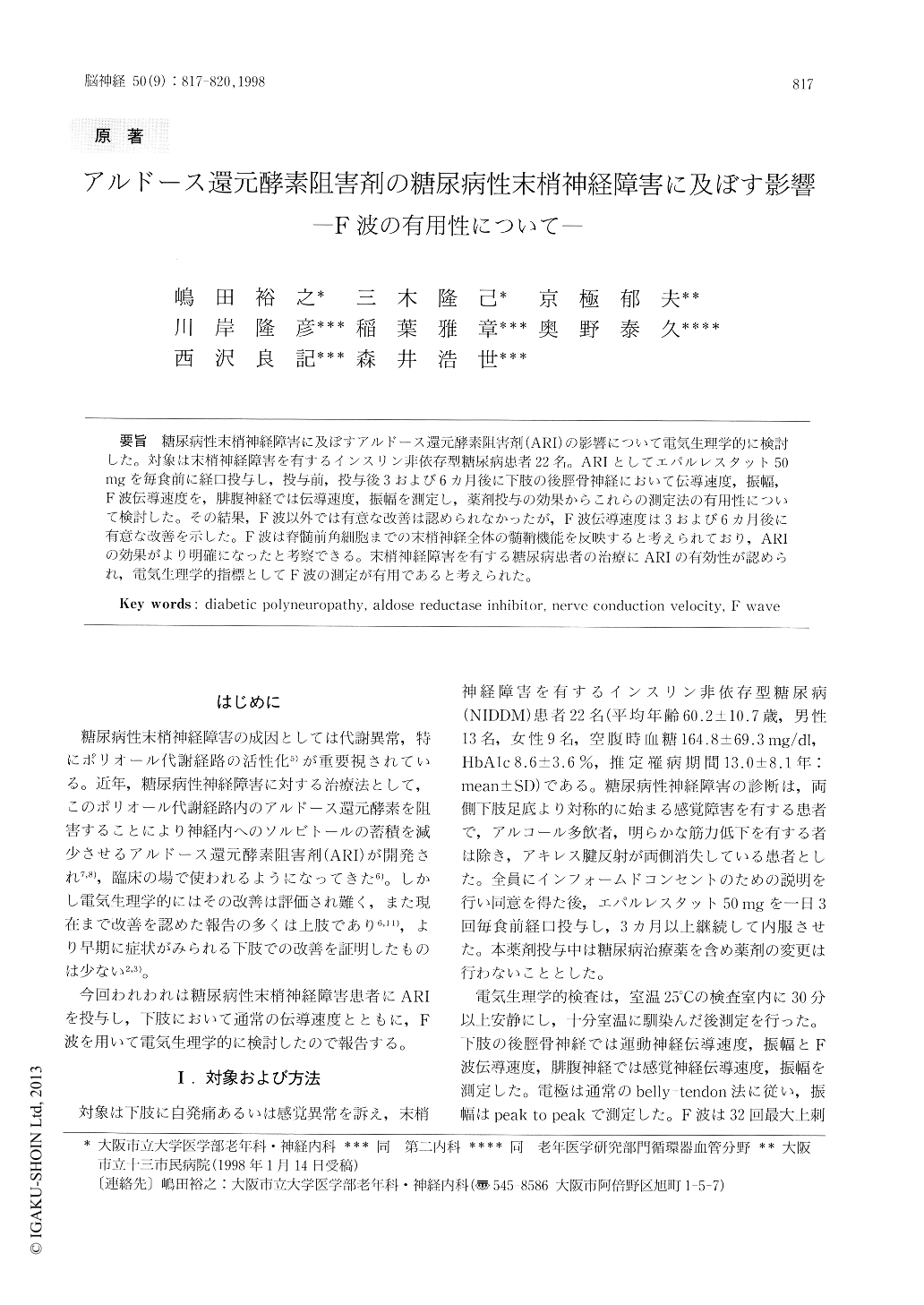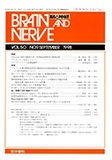Japanese
English
- 有料閲覧
- Abstract 文献概要
- 1ページ目 Look Inside
糖尿病性末梢神経障害に及ぼすアルドース還元酵素阻害剤(ARI)の影響について電気生理学的に検討した。対象は末梢神経障害を有するインスリン非依存型糖尿病患者22名。ARIとしてエパルレスタット50mgを毎食前に経口投与し,投与前,投与後3および6カ月後に下肢の後脛骨神経において伝導速度,振幅,F波伝導速度を,腓腹神経では伝導速度,振幅を測定し,薬剤投与の効果からこれらの測定法の有用性について検討した。その結果,F波以外では有意な改善は認められなかったが,F波伝導速度は3および6カ月後に有意な改善を示した。F波は脊髄前角細胞までの末梢神経全体の髄鞘機能を反映すると考えられており,ARIの効果がより明確になったと考察できる。末梢神経障害を有する糖尿病患者の治療にARIの有効性が認められ,電気生理学的指標としてF波の測定が有用であると考えられた。
The effects of the aldose reductase inhibitor epalrestat (150mg/day) on electrophysiological function were examined in 22 NIDDM patients with diabetic polyneuropathy for 6 months. Although no significant differences were observed in sensory (the sural nerve) or motor (the posterior tibial nerve) conduction velocities and amplitude, only F wave conduction velocities were significantly improved at 3 and 6 months after the treatment. There were no significant changes in CV-RR, vibration threshold and laboratory data. No serious side effects were observed during the therapeutic trial.

Copyright © 1998, Igaku-Shoin Ltd. All rights reserved.


